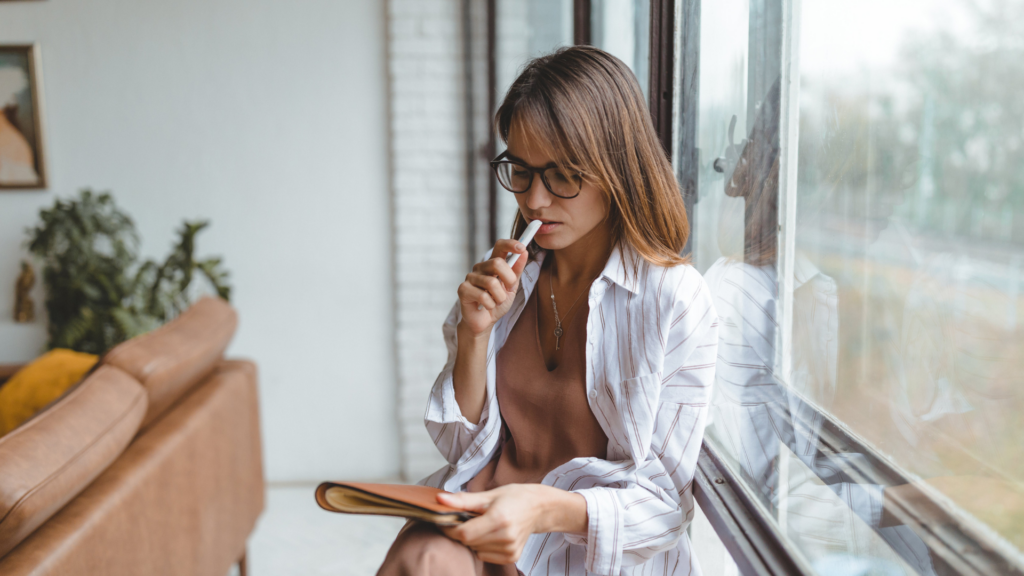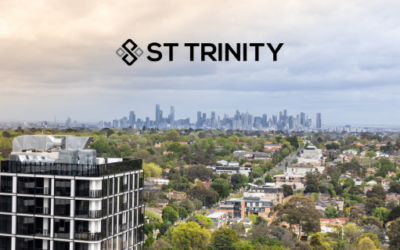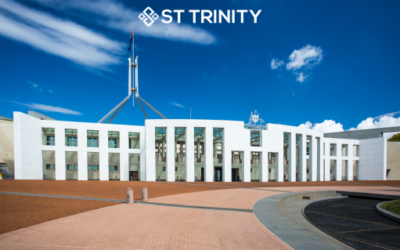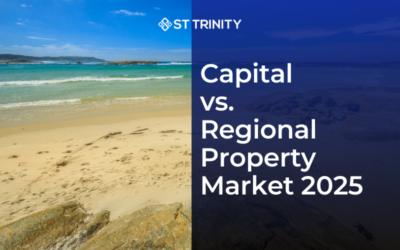Investment and owner occupied properties offer diverse opportunities and challenges in the real estate market. However, it’s a financially heavy decision that requires calculated strategies to succeed. Before you put your money into it, it’s important to understand the nuances between your options to achieve profitable returns on your investment.
Our comprehensive guide below delves into the intricacies of investment and owner occupied properties to break down the benefits, considerations, and implications of each.
Table of Contents
Investment Properties
What is an Investment Property?
An investment property is a property purchased with the primary purpose of generating rental income and experiencing potential capital appreciation (increase in property value) over time.
Benefits of Investment Properties:
- Passive Income: Rental income provides a steady flow of money that brings in financial security and freedom. According to Ubank property market update, investment property values have surged by over 6.0% compared to the previous year. Following that, aspiring property investors who are considering buying investment property can seize the opportunity presented by investment properties to generate passive income and grow their wealth.
- Capital Appreciation: Over time, the property’s value may increase, offering a significant return on your investment.
- Portfolio Diversification: Investment properties diversify your portfolio beyond stocks and bonds, potentially minimising risk on all assets.
- Tax Advantages (Location-Specific): Rental income and property expenses may offer tax deductions. To get more specific measures of the tax benefit based on your property location you may find it best to consult a tax professional.
Drawbacks of Investment Properties:
- Upfront Investment: Investment properties typically require a larger deposit and settlement costs than owner occupied properties.
- Management Responsibilities: Finding tenants, managing repairs, and property maintenance require time and effort. However, you can hire a property manager to tend to these responsibilities.
- Vacancy Periods: Periods without tenants can lead to a temporary loss of rental income.
- Market Dependence: Rental income and property values depend on the state of the local property market.
- Negative Cash Flow: Expenses like mortgage payments, property taxes, and maintenance can sometimes exceed rental income. However, this can lead to tax advantages and be flipped into a positive.

Things to Consider When Buying an Investment Property:
- Location and Rental Demand: Research areas with high rental demand and low vacancy rates.
- Property Type: Consider single-family homes, apartments, or even dual occupancy properties. Dual occupancy properties, also known as dual-living homes or duplexes, offer two separate dwellings on one block of land. This can be a great option for investors seeking additional income from a single property. Many dual occupancy home designs are available, including dual living house plans with separate entrances and potentially shared amenities.
- Projected Income and Expenses: Carefully analyse projected rental income and expenses to ensure cash flow that suits your goals (positive, balanced or negative). Use an investment property calculator or property investment calculator to evaluate potential rental income and expenses before making a purchase decision.
- Financing Options: Investment property loans typically have different terms and requirements than traditional mortgages.
- Management Strategy: Decide if you’ll self-manage the property or hire a manager.
Looking to dive into the world of investment properties? Click here to find your ideal investment property and begin your journey today!

Owner Occupied Properties
What is an Owner Occupied Property?
An owner occupied property is your primary residence, the place you live in.
Benefits of Owner Occupied Properties:
- Building Equity: Over time, your mortgage payments contribute to building equity in the property. As you pay off the mortgage, you own more of the property and a long-term asset.
- Greater Control: You can renovate and personalise the space to your liking. This is a great advantage for you as you can adjust your home, upgrade or downgrade as necessary to balance maintenance expenses.
- Tax Advantages: Some locations offer tax benefits for homeowners. Consult a tax professional to get more details on this.
- Government Grants and Incentives: Some locations offer grants or first-home buyer programs can help with the upfront costs of purchasing a home.
Drawbacks of Owner Occupied Properties:
- Lower Return Potential: Owner occupied properties generally offer lower returns compared to investments as you will live in the property and not receive income from it. However, there is the potential for capital growth over time.
- Significant Costs: Upfront costs (deposit and settlement) and ongoing costs (mortgage, maintenance) are significant.
- Less Flexibility: Owning a home can limit your mobility compared to renting, especially if you anticipate job changes or relocation needs.

Making the Decision: Investment vs. Owner Occupied
Here are some factors you need to consider before you take your pick between investment or owner occupied property.
- Financial Goals: Consider your short-term and long-term financial goals. Investment properties offer the potential for higher returns but require a longer-term outlook.
- Risk Tolerance: Investment properties carry more risk of vacancy or market fluctuations. Consider your comfort level with risk.
- Lifestyle Preferences: Owning the property is for you if you value stability and control over your living space. If you are thinking about generating passive income to open up the potential for higher returns, go for investing in property.
Financial Considerations:
- Deposit: Deposit requirements are typically higher for investment properties.
- Mortgage Options: Interest rates and terms for investment mortgages may differ from owner-occupied.
Now that we have explored the core differences between investment properties and owner occupied properties, let’s delve deeper into some technical aspects to consider.
Investment Property Strategies:
- Buy-and-Hold: This is a long-term strategy where you purchase a property, rent it out over time, and benefit from potential capital appreciation and steady rental income. This strategy requires patience and careful planning to carry through all ongoing expenses.
- Fix-and-Flip: The fix-and-flip strategy involves purchasing a property below market value, renovating it to increase its value, and then selling it for a profit. This approach is not for everyone and takes a very strategic understanding of many aspects including prior knowledge of renovations, construction costs, and the local market. It can be a high-risk, high-reward strategy with tight timelines and unexpected expenses.
- Balanced or Positive Cash Flow: This sweet spot strategy focuses on properties with rental income balancing or exceeding all expenses (mortgage, property taxes, maintenance, etc.). You can ensure a steady stream of income after covering all property-related costs and if looking at a balance strategy, you will still have many tax advantages.

Financing Investment Properties:
- Investment Property Loans: These loans typically require a larger deposit (around 20%) compared to owner occupied loans, with potentially high interest rates. Lenders will consider your creditworthiness, borrowing capacity, and the property’s potential rental income. When considering financing options for investment properties, explore investment property loans and investment properties interest rates that offer terms tailored to your needs from property investing lenders.
- Loan-to-Value Ratio (LVR): LVR is the ratio that compares the loan amount to the property value. A lower LVR (meaning a larger deposit) generally translates to better loan terms and lower interest rates.
- Lenders Mortgage Insurance (LMI): If your deposit is less than 20%, you may be required to pay LMI, which protects the lender in case of default.
Management Considerations:
- Self-Management: This involves managing the property yourself, including finding tenants, collecting rent, handling repairs, and maintenance. It can be time-consuming and requires knowledge of tenant laws and property maintenance.
- Property Management: Hiring a property manager can save you time and effort. However, property management fees typically range from 6% to 12% of the monthly rent, reducing your overall profit.
Tax Implications for Investment Properties:
- Rental Income: Rental income is taxable income. However, you can deduct some expenses related to owning and renting the property, such as interest on your investment loan, property taxes, depreciation, and repairs. Consult a tax advisor to understand deductions, tax strategies for rental properties and understand the implications of capital gains tax on investment property sales. Investors of investment properties in Australia, can take advantage of various tax deductions on investment properties, reducing their taxable income.
- Capital Gains Tax: When selling an investment property, you may be subject to capital gains tax on the profit made from the sale. Understanding capital gains on investment property can help you plan ahead and potentially minimize your tax burden.
Additional Considerations:
- Dual Occupancy Properties: These properties offer two separate dwellings on one block of land, potentially providing rental income from one unit while you live in the other. It’s a good option for investors seeking additional income or for extended families.
- Location: For investment properties, consider areas with high rental demand, low vacancy rates, and potential for property value growth. You can research local rental markets and consult with our real estate professionals for insights.
- Property Type: Single-family homes, condos, apartments, or even dual occupancy properties each have their advantages and disadvantages in terms of rental income potential, maintenance costs, and overall investment strategy.

The Final Decision
Choosing between an investment and an owner-occupier property is a personal decision.
Carefully weigh your financial goals, risk tolerance, lifestyle preferences, and plans. Consider seeking professional advice from a financial advisor and a tax professional to gain a more personalised perspective based on your unique circumstances before you make a final decision.
Remember:
- Investment properties offer the potential for higher returns but require a longer-term outlook and involve a higher degree of risk and management responsibilities.
- Owner-occupier properties offer stability, equity building, and control over your finances.
For guidance on properties with the highest yield suited to your portfolio, contact us at St Trinity Property Group today. We have over a decade of expertise in property acquisition to empower you with the most profitable property insights. Take a look at our services here and book a session with us today to understand your unique needs and unlock the full potential of your property endeavours. Let’s turn possibilities into realities together!

Frequently Asked Questions
Should I buy a home or an investment property first?
Investing in a home offers stability, equity building, and control over your living space. It’s ideal if you plan to stay put for a while and value having your place.
On the other hand, investment properties focus on generating rental income and potential property value growth. This strategy comes with a longer-term outlook, higher risk, and more management responsibilities, but offers the chance for higher returns.
Invest in a rental property vs owning a home to stay in?
Paying off your home eliminates mortgage debt and frees up monthly cash flow, offering financial security.
Investing in a property could generate higher returns over time, but requires a larger deposit and carries the risk of vacancies and market fluctuations.
Should I pay off my home or buy an investment property?
The decision to pay off your home or buy an investment property hinges on your financial goals. Here’s what to consider:
- Financial security: Pay off your home to eliminate debt and free up monthly cash flow for future investments or emergencies.
- Higher returns: Invest in a property for potential rental income and capital appreciation, but be prepared for a larger deposit, ongoing management, and potential market risks.
- Risk tolerance: Consider your comfort level with potential vacancies and market fluctuations that can impact investment property income.
Talk to a financial advisor to assess your situation and create a personalised plan that aligns with your risk tolerance and long-term goals.
Does it make sense to rent out houses as an investment?
Renting houses can be lucrative, offering steady income and potential property value growth. However, it’s not a walk in the park. Upfront costs, ongoing management, and vacancy risks are realities.
Is real estate investment a long-life business?
Yes, real estate can be a long-term business. Rental income offers consistent income, property values can grow, and it’s a tangible asset you control. However, it’s a marathon, not a sprint. Holding for years and weathering market dips is key. To be successful, you need patience, market knowledge, and a long-term outlook.
How to convert an owner occupied house to a rental property?
Converting your own home into a rental property involves several steps:
- Legal and Financial Considerations: Check local regulations regarding renting and ensure your mortgage allows renting (some require lender permission). Speak with a tax advisor about potential tax implications.
- Preparing the Property: Address any maintenance issues, consider renovations to enhance rental value, and ensure the property meets safety standards.
- Market Research: Research fair rental rates in your area to maximise income while attracting qualified tenants.
- Tenant Screening: Implement a thorough screening process to find responsible tenants with good credit history and rental references.
- Management Plan: Decide if you’ll self-manage the property (finding tenants, repairs) or hire a property management company.
What is an investment property loan?
An investment property loan is a specific mortgage designed for purchasing properties that generate rental income. Compared to owner occupied loans, they typically require a larger deposit and have higher interest rates.
What is a mortgage loan?
A mortgage loan is a long-term loan provided by a bank or lender to finance the purchase of a property. You repay the loan with interest over a set period, typically 15-30 years, gradually owning the property as you make payments.
What is an owner occupied loan?
An owner occupied loan is a type of mortgage for financing a primary residence. It typically offers lower deposit and interest rates than investment property loans. You’ll live in the property you purchase with this loan.
Is it wise to take a home loan to build a rental property?
A home loan to build a rental property can be a gamble with potential rewards.
While rental income and appreciation offer an upside, construction loans are stricter, you’ll shoulder management duties, and vacancies can hurt your cash flow. Do your market research, ensure your finances are solid, and consult professionals before diving in.
Can we get a loan to buy a home to be rented out?
Yes, you can get an investment property loan specifically designed for purchasing homes intended for rental income. These loans typically require a larger deposit and have higher interest rates than traditional mortgages.




